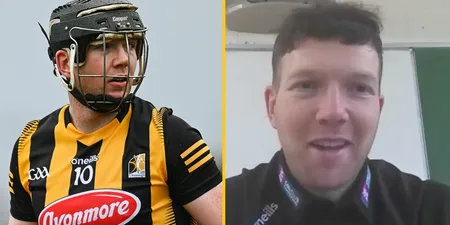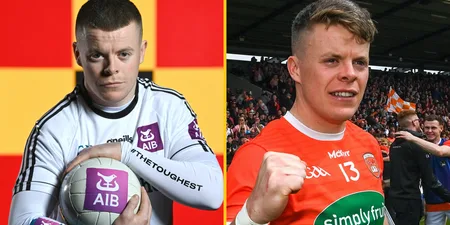Many gaels have made the step from club to county management, from county to club.
It’s garnered mixed results.
There’s no scientific way of working out which manager is going to do well with which team. We can’t even agree over what is actually the step up, going to club or going to county.
So we’ve put it up for debate: Which is tougher, being a club manager or being an inter-county manager?
Conán Doherty says: CLUB MANAGER.
No-one is looking for anything more from a county manager than short-term success. Of course, granted, that comes with pressure and a demand to get the job done quickly but it also comes with a licence to be absolutely narrow-minded and short-sighted in your approach.
A county manager can train one team, one group of players that he’s accumulated at the start of the season, they can hand pick the best of the best between all the clubs and then go and work on a strategy that give them a short-term burst that will ultimately define his job as a success. It’s why so many teams at the top are adopting a defensive approach, it’s why they’re prioritising fitness – it’s easier that way to get quicker results.
When you undertake a club job, you undertake the responsibilities of that entire club too. Or at least you should.
You can’t pick your players, you’re given them. You can’t abandon everyone else outside of your team and you can’t afford to not worry about the underage structures because they’re all going to feed into the senior team and they’re the future of the club. If you’re there long enough, they’re going to directly affect your team too in a much bigger scale than it would when you can just keep picking the best from every club at county level.
A club manager is tasked with caring about all of this. He has to set a structure in place that will define the club’s style and bring more players through. He’s tasked with bringing on the lads just out of minors, he’s responsible for giving fringe players in the reserve team a shot and he’s asked to do this on his time. On his record as a manager.
If he doesn’t, the club loses players.
He’s supposed to look after the health of the club and make sure that, when he leaves, it’s in a better place than when he came in. Or at least that its stable.
A county manager is in charge of an elite set-up. He can chop and change players, cut them if he likes. You can’t do that at club level. You can’t just expel players from their own club.
Success is much more relative at county level too. Pete McGrath will forever be remembered a success in Fermanagh now because he got them to the All-Ireland quarter-finals. The standard is, of course, way higher but so is the realism.
Expectations at club have never and never will dampen. People are more parochial. They’re more competitive and they’re more demanding that they beat the shower down the road and that the club looks healthy while you’re doing it. The championships are more competitive in most of the counties and, despite that, there’s more expectation to deliver. Because the divide is never too high with the best teams (unless you’re in Armagh).
Don’t underestimate the very real fact that clubs mean more to people too. They’re more connected with it. It’s their communities and it’s their every day lives. You’re responsible for that at club level.
We’ll not even get into money. Or the lack of.
Conor Heneghan says: INTER-COUNTY MANAGER.
As much as I have respect for club managers and the scale of the task on their hands, to suggest that the job they have to do is tougher than that of an inter-county manager is quite an exaggeration.
Granted, they don’t have the same resources at their disposal. They don’t have the same quality of players or facilities available to them.
An inter-county manager won’t have to travel to a match one or two players light because some fellas broke a drinking ban and slept through the alarm in the morning.
But those are all minor considerations compared to the intense levels of scrutiny and expectation that county managers have to deal with for the best part of entire year on an annual basis as long as they stay in the job.
And what thanks for they get for it? In the majority of instances, very little, because only a few counties can be successful and in an age where short-termism is very much in vogue, it won’t be long until half the county have the knives out crying for change.
Club managers will have to put up with some dissenting voices in the dressing room from time to time and there are times when they’re probably best advised to stay away from the local pub in case they find their ears burning with talk of how they’re the wrong man for the job.
Inter-county managers, meanwhile, can rest assured that their acumen is being discussed anywhere they go in their own county and if they try laying low, they’ll soon see, hear or read about it on TV, on the radio, in the papers and on the Internet.
Take away managerial freaks like Brian Cody, or Mick O’Dwyer or Sean Boylan from previous eras, and you’ll find that the lifespan of an inter-county manager is very short.
Why? Because not only is it practically a full-time job, the brave few who take it on can only cope with the intense pressure for so long and soon feel the need to get some sort of balance back in their lives.
Inter-county managers, for the most part, will have managed at club level at some stage in their careers. In most cases, it is because of their aptitude with a club that they are summoned to manage at a higher level, at a tougher level than before.
It is when they do make that step up that managers often find out what they’re really made of and in a world that is incredibly cut-throat, only the strongest survive.
To be fair to club managers, the levels of professionalism evident at inter-county level are definitely seeping down to club level. Managing a high-achieving club is almost as demanding as managing a county team these days.
But it’s not the same. As far as gigs in the GAA go, managing a county is as tough as it gets, something that the very best club managers will find out at some point.
Brought to you by AIB GAA, proudly backing Club & County. Follow AIB GAA on Twitter, Instagram and Facebook.























































